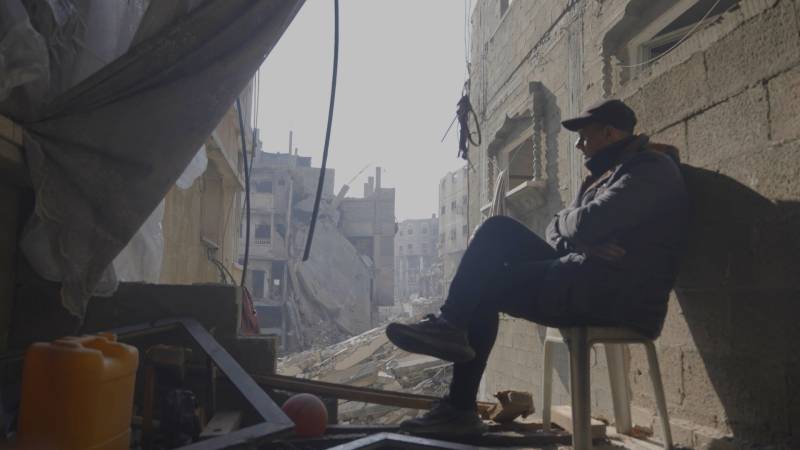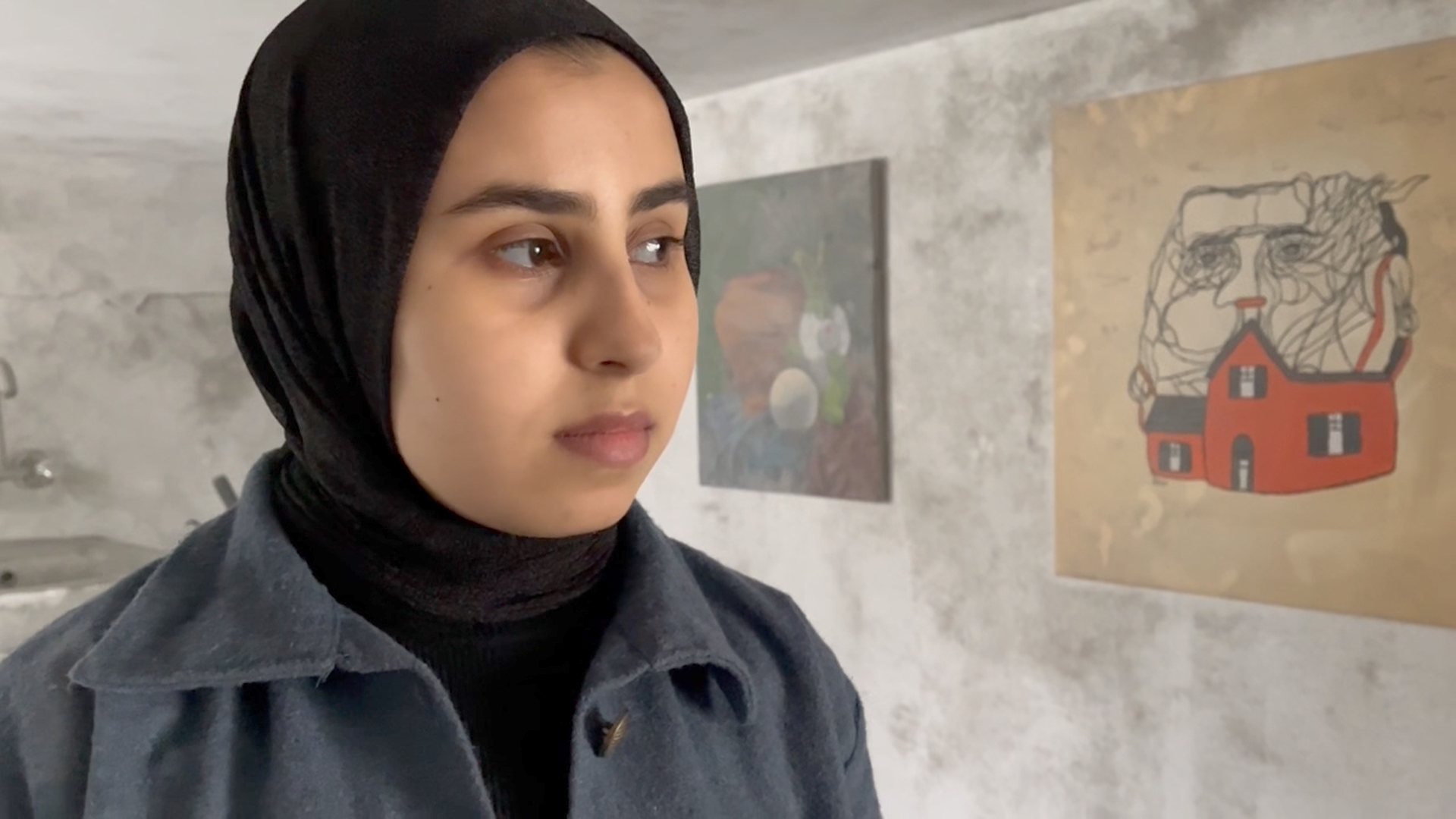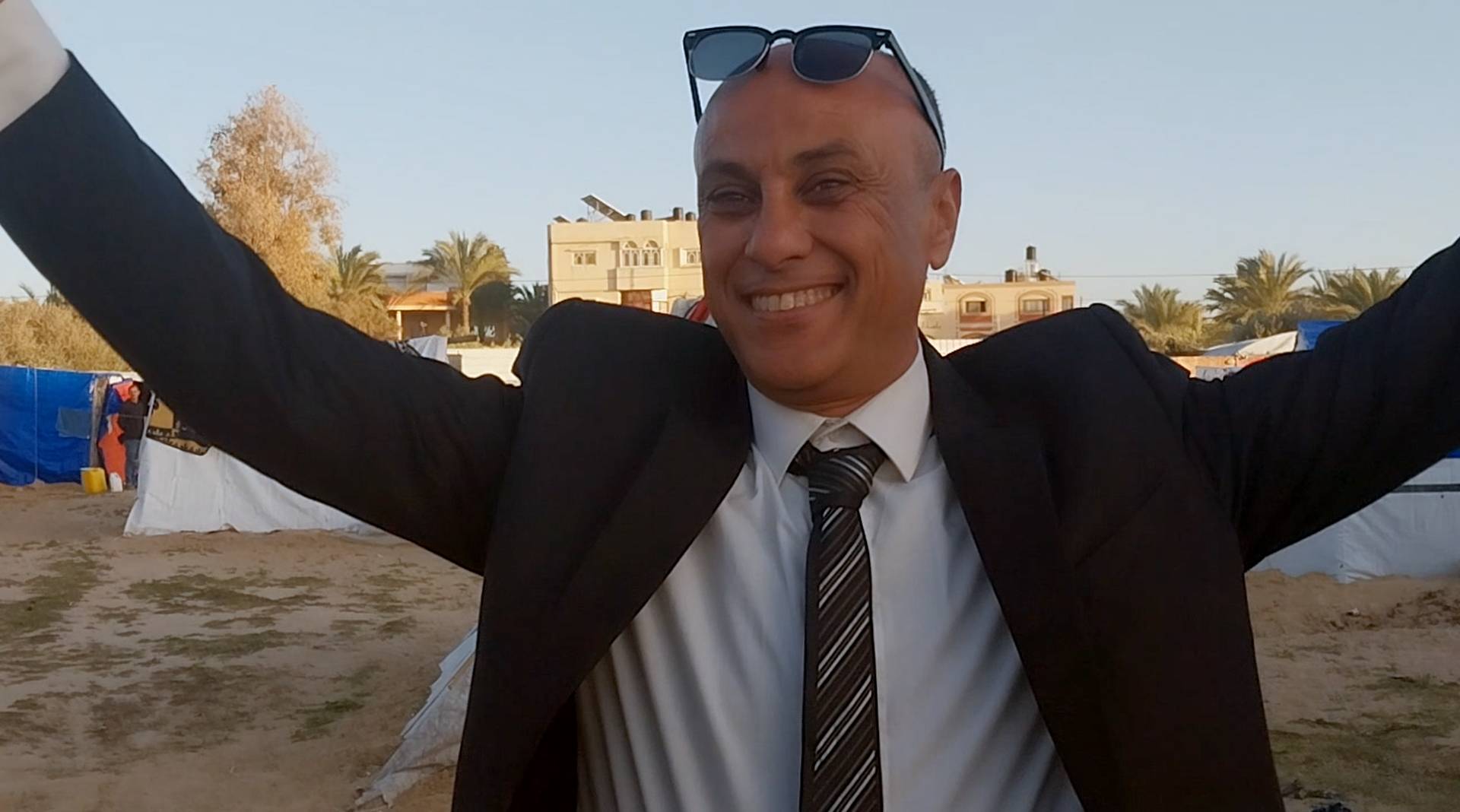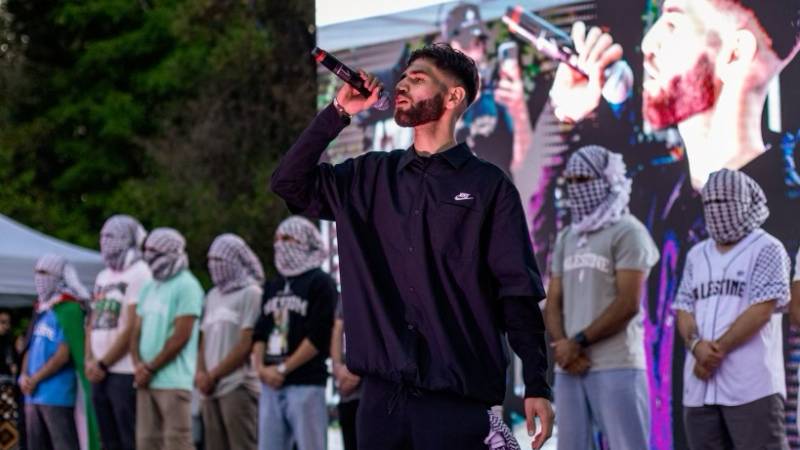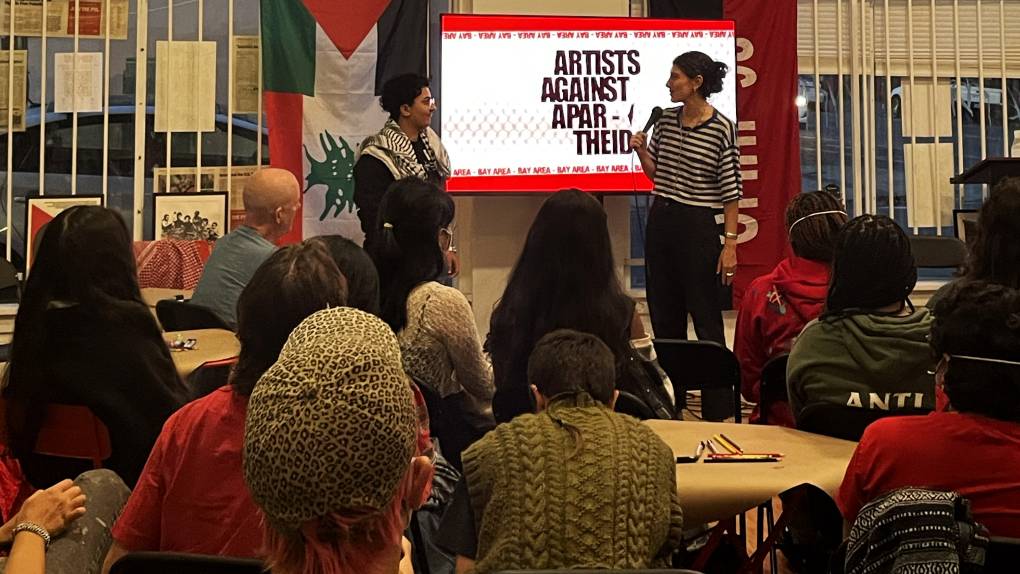Consider the enormous difficulty of making a feature film in Gaza, even before the war of the last 13 months. Ahmed Hassouna persevered for four and a half years, he recounts in his blistering short film, Sorry Cinema. When he finished in 2019, Palestine didn’t have even a single movie house to show it.
Hassouna includes a quick-cut montage of production shots from Istrupya (Senseless Loss), which feel terribly nostalgic juxtaposed with contemporary verité footage of bombed-out buildings and parachuted-in supplies. In need of firewood for cooking, he chops up his film slate (or clapperboard), ending Sorry Cinema by watching his dreams literally go up in smoke.
A highlight among the 22 shorts that comprise the Arab Film Festival’s centerpiece film, From Ground Zero, Sorry Cinema eloquently conveys both the intangible costs of war and the impulse to make art in impossible circumstances.
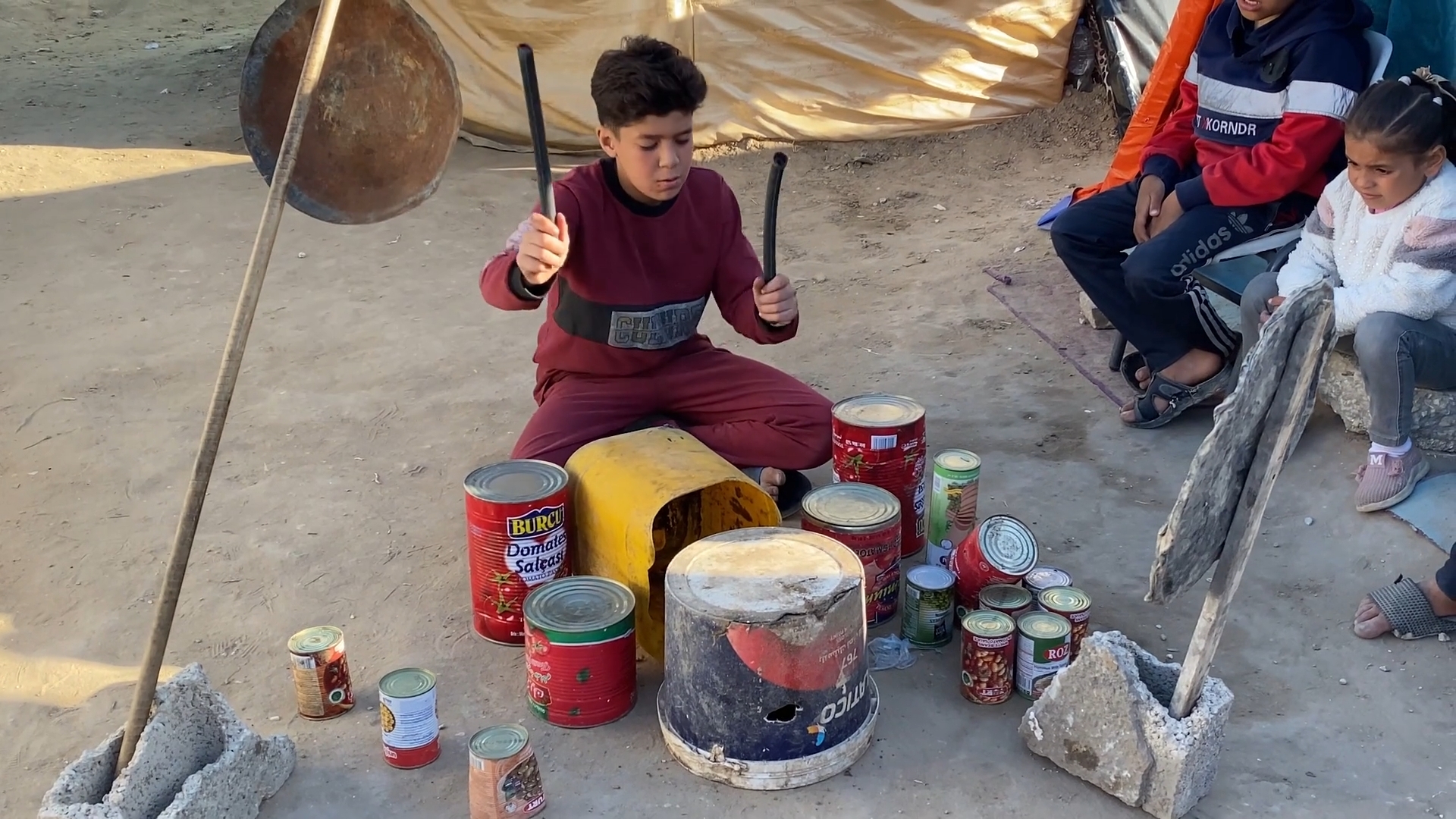
Another haunting first-person piece, Ala’a Islam Ayoub’s Overburden, revisits the young filmmaker’s decision not to take any of her beloved books when she and her mother hurriedly fled the city of Gaza for the north. “What is heavier than oppression?” she asks bitterly. “How could I have thought for an instant that my books weighed more?”
Palestine’s official submission for the Academy Award for Best International Feature Film, From Ground Zero screens Wednesday, Oct. 30 at the New Parkway Theater in Oakland. Editor’s note: The screening is sold out, and the film is not included in the festival’s online program, though attempts are being made as of publication to add an additional screening.
